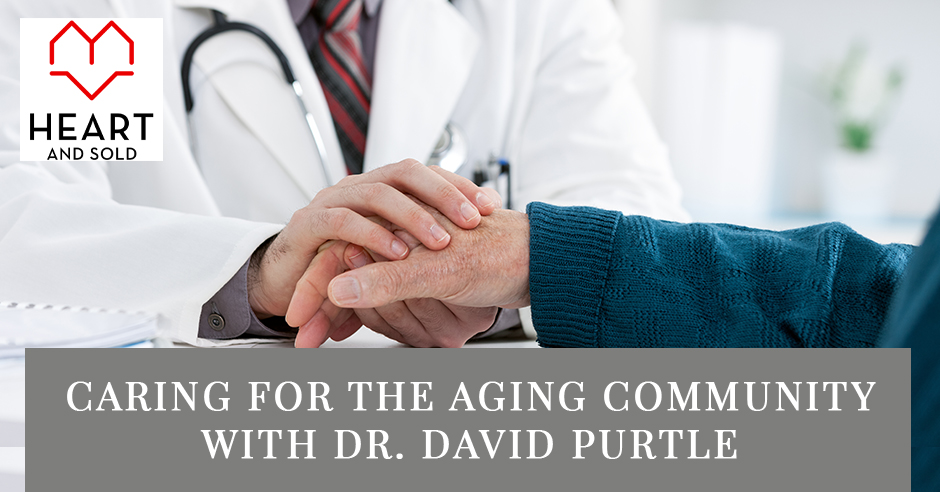
Practicing geriatric medicine is a little more delicate than some other practices in medicine. The people you’re dealing with are much older and are dealing with a different set or degree of complications than younger patients. Chadwin Barley talks to Dr. David Purtle, a geriatric medicine practitioner in WellMed at Lakeway. Taking care of many senior citizen patients, Dr. Purtle gives insight into the systems at work at WellMed to take care of these patients. Let Dr. Purtle give you some tips to improve the lives and health of your senior and aging population.
—
Listen to the podcast here
Caring For The Aging Community With Dr. David Purtle
It’s my great pleasure and honor to have the opportunity to speak to Dr. Purtle. He is a doctor that works through WellMed, a local clinic here in Lakeway, Texas on the west side of Austin. We appreciate you spending some time with us, Dr. Purtle, to tell us about yourself, your practice and how you offer value to the community. Let’s start by allowing you to tell us a little bit about your credentials and what got you into the wellness industry.
Thank you for letting me in your show and the opportunity to speak with the community to let them know what I do and what WellMed is all about. I am Dr. David Purtle, I am a physician here in Lakeway. I went to medical school at Texas Tech University. I subsequently went to a residency at Corpus Christi Texas at the Corpus Christi Family Medicine Residency Program and also did a fellowship at Geriatrics. I did that because it was an unexpected love. When I went to medical school, the education that they had for Geriatrics wasn’t that good. It wasn’t something that I felt that I was enjoying. It was one of the necessary steps that you go through.
When I got into residency, I had some good instructors, somebody who can show me the different side of it and what it’s about. It’s not only that nursing home exposure that you get that’s on it. That’s part of it but that’s the smallest part, as it turns out. It’s this whole new world of, we’ve been treating people, but people continue to age. Our needs change and what’s happening is changing. It happens to all of us. They were so good at it and it has so much compassion in what they did that they opened my eyes to something that I haven’t thought about in that way before. I ended up loving it and doing the Geriatric Fellowship with them and learning some more on better take care of our growing population. I know that one day, I myself will be a part of it.
It’s inescapable, right?
That is true. There are a lot of folks who don’t do it. It turns out when you go through the fellowship, there are only six in the whole state of Texas that were doing that fellowship in that particular year. Two of those six were in Corpus Christi. This is going through an MD-based fellowship and an accredited fellowship, so not that many. The reason for that is there are a lot of people that go into medicine for the love of it. You have to but there’s been no way to practice it in a way where you could still put food on the table for the family. It’s a challenging career in so many aspects. What you do with it after you graduate, traditionally, has been to go into Family Medicine. You still focus on all ages and you know how to better take care of our seniors. While that’s great, it still left a huge gap in the number of seniors that we have and the level of care that they needed on there.
Isn’t age 65 and over the largest growing demographic?
As you treat people, you see people as they continue to change, and their needs also change. Click To TweetThat is correct. The needs are also changing. People are living longer. Thankfully, many people are also living healthier lives. It’s important to realize that people continue to change as we get older. No one would argue that you would treat a three-month-old differently than you would a 30-year-old. There are different needs, not just medications but also where we are in our lives and our life cycle. It’s just as different between 30 and 60 and even more different between 60 and 90. The traditional way of looking at medicine has been if you’re eighteen, you’re an adult. From 18 through 90 or 100-plus, it was all grouped into the same. That’s simply not the way that life works.
It’s incredible how, with the advent of technology and new ways of thinking, healthcare is being revolutionized as we speak.
If I can take a moment about what WellMed is, it starts back in a theory that I had with my colleague, my only co-fellow at the time in residency. We were thinking to ourselves that we’re seeing most people now that are 65 and above. Some folks have a lot of complicated health issues that all fit together, that also qualifies under geriatrics’ complex health needs. What we also noticed was that we were seeing a lot, but we didn’t have the time that we needed to be able to address the concerns that they had. This was a traditional, hospital-based system in which we were trained. Subsequently, because we couldn’t get to everything that they needed, there were a lot of folks that would end up in the ER for a complaint that evolved into something more serious. They would even be in the hospital more.
We spoke with our faculty and they spoke with their higher-ups in the hospital. We came up with a strategy to help manage that. We wanted to see less in the amount per day but spend more time. We wanted to see how that changed. The deal that we made was that we’ll take the calls for these patients. That means 24/7. We’ll cover each other if one of us is out of town so that they’ll always have that access. We’ll even go to the hospital in the middle of the night. This is a little different from how WellMed is. I’ll get to that, but this is what we did.
What we noticed after that is that we almost eliminated ER visits. We only had a few for the remaining 6 to 7 months that we did this. We had one hospitalization. It was substantially reduced by the amount of care that we were able to provide. We got a lot of data and insight into one of the biggest problems in health care. What I didn’t know, as when we were doing this, there was already a company that had been doing this at that point for over two decades. That’s what WellMed is. WellMed is different than what you would experience with your traditional doctor visit. The entire care model is different than what a lot of individuals are used to.
I know what I was used to. Whenever I saw my own doctor, it was you go check-in, you had an appointment time and you wait for an hour to an hour and a half. When you go on your visit, you’ve got this list of questions and you’ve got five minutes. Basically, it’s a rush through. It’s important to realize that it’s not that doctor’s fault that’s having to do that. It’s not the staff’s issue. It’s the healthcare system in itself that’s overburdened. There’s so much to do in those times that they’re doing the best that they can because that’s what that model says. Under that model, which is called a fee for service model, you essentially get paid on how many people you see. That payment reimbursement keeps getting less and less every year. It makes it difficult, there’s a lot of different pressures.

Practicing Geriatric Medicine: There’s no way to really practice geriatric medicine in a way where you could still put food on the table for the family.
We’re different because we don’t charge, so to speak, whenever somebody comes here. We’re not based on that fee for service. If a person comes to see us, they can see us as much as they wanted. It’s not something that we’re billing for from our end. That opens the gates for preventative services, for in-depth health care to be able to address all the concerns that a person has or as many as we can in that visit. Instead of spending five minutes with a patient, I typically will spend an hour plus, sometimes an hour and a half with a new patient. We always set up at least 30 minutes with follow-ups, depending on what we need. Some visits are quick, some not so quick. It’s prevention and taking the time to do that.
Tell us what your target client or target patient market is age-wise.
This is a geriatric-focused clinic because the target and the goal have been to improve the lives and health of our seniors and the aging population. That means Medicare and Medicare Advantage plans. I believe there’s a new PPO plan that’s coming into play that we’ll be able to accept. That’s not me. There’s a corporate part of this that helps determine which plans are accepted on there. When I say this, and I truly mean it, I would take everybody if I could. I know ultimately, that’s going to be where that’s going. For now, Medicare and Medicare Advantage is our goal.
To speak to the success of the whole, WellMed started in San Antonio in 1991. It has grown out of San Antonio with a large number of clinics there to the Austin market. It now involves Dallas and parts of Florida, Fort Lauderdale and Miami. There are about 16,000 providers. That includes physicians, nurse practitioners and physician assistants that are involved with the care of the people that we’re providing. What we know from the San Antonio area is that our seniors were living, on average, two years longer than if they went anywhere else. They’re not just two years for the sake of two years. They were two years of a healthy, good quality life.
I appreciate you speaking to the different markets that you’re in as well because I have had guests on my show that are agents in San Antonio, Dallas and Florida. They will be glad to hear about this model and to become better educated so they can be a conduit of introductions for a client who may need these types of services. We’ve talked about the target client base. You did say that it’s not a traditional model. That’s going to be on everyone’s minds. We won’t even get past it if we don’t address it. Talk to us about how someone who’s interested in at least considering your services what they can expect from an engagement.
I truly do feel like actions are always going to be louder than words. Seeing this and talking to somebody who’s actually been part of this is going to speak volumes. They’re all surprised, whenever they come in, to see how much time is involved. If you’re one that’s like, “I want to get in and I want to get out,” it may not be the most ideal because there is so much involved. What would it be like to come here from the perspective of a person that’s coming in for the first time?
At ages 65 and above, some folks really begin to develop very complicated health issues that all fit together. Click To TweetAlso, from the payment perspective so they can understand how they subscribe to your services.
If it’s Medicare, it will be similar to how you’ve always done it. You call, get your schedule, and we’ll have our initial visit. That part will be similar. The Medicare Advantage plans are a different experience. We certainly will verify the insurance that you have when you call. There are different plans that we accept so I’d encourage you to speak with a broker about those. I cannot recommend one or the other on that. Talk with a broker and say, “Which plans do Dr. Purtle accept?” If it’s one of them, we will call and verify that insurance plan.
You’ll have your premium on your plan, but you won’t be receiving a bill from us. That’s not what we do. That’s part of what you have with your plan. You’ll come and get an appointment. There’s not going to be a co-pay under your Medicare Advantage plans. For us right now, I believe there may be one specific plan. That can always change. Currently, I believe there’s only one plan that does require a co-pay. It’s a nominal fee. When I say nominal, I mean $5.
We’ve gotten past the insurance phase and getting involved and engaged financially. We’re into our first appointment with you. What does that look like?
Our first appointment will be more preventative. That’s an appointment where you may get to meet me as an introduction. There’s going to be a lot of screenings that are done well. We’ll be screening for common issues that we found to be problematic as we age. We’ll screen for depression, smoking, alcohol abuse, falls and incontinence. There’s a whole list of things. You’ll be speaking with one of our nurses that we’ve selected and is passionate about what they do. There will be other screening studies like looking for blood vessel disease, vascular disease or nerve damage called neuropathy. There are specific things that we look at.
After that, we typically do blood draws. We’re looking at common screening issues that a lot of individuals may not be aware of. I can’t tell you how many times I’ve heard, “I’ve been going to a doctor for 20 or 30 years. Nobody has ever ran that test or told me that this was going on.” We’re not ordering tests for the sake of ordering. These are things that have truly been identified to affect the population as a whole. These are things that need to be looked at, at least once per year. That’s things like your liver health, kidney health, your thyroid to see the function that’s there, your average blood sugar control, and looking for anemia. There’s a whole list of things we will look at. What I want to do is get those results back, be able to synthesize that and have the time to go over any medical records on a medical record release that you would sign on your initial visit.
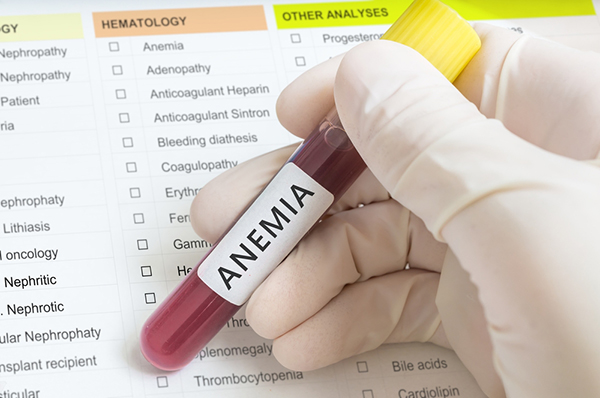
Practicing Geriatric Medicine: You need to be able to check the liver, kidney, thyroid, blood sugar control, and even anemia.
I’ll go through all of that data, which is a lot, before your first visit. When you first meet with me, I have a good idea about where your current health status is and what your past history is. There’s no time wasted. By the time you get to me, we’re going to hit the ground running. You’ll get to talk. That initial visit with me is conversational. It’s not unlike what we’re doing now. It’s talking about your past, your loves and what you like because all of that is important. That tells me about you, how you’re doing, things that you enjoy, what kind of activities you can do and things you may not be enjoying anymore. There are a lot of things you can gather just by having a good conversation. I give people the opportunity to do that too.
It makes me feel optimistic about the future of healthcare and my own future. As you know, I’m moving into the 50s and then beyond sooner rather than later. You are taking the time to get to know these people on a personal level and work with them at that foundational level. The truth of the matter is that what we know today to be true, health comes from your emotions as well. Knowing that you’re doing these screenings that address people’s emotions and where they are in life as their life is inevitably changing sounds like a wonderful component. It’s something new that I hadn’t been exposed to before in healthcare.
It’s funny because sometimes when it gets conversational, things are being relayed. They’ll go home and they’ll say, “It felt like half the visit. We were just chit-chatting about fishing or going to the golf course.” You’ve learned so much from having those conversations. If you’re going fishing, your balance and gait have to be pretty good because you have to be on a boat. Your health has to be good enough to be on the lake at any given point. There’s a lot of data that you can get and a lot of health insights.
Honestly, it’s a cliché and a trite thing to say that you want to treat people like family, but I use that a lot. I use it even with our staff when they’re asking me questions, which are, “What would you want if it was your mom or your dad?” I have to look at that myself, too. I know that if my dad’s going to a doctor, I would hope that that would be what he would get to do. Somebody who would actually sit down and show enough time and care to about what he’s liking and what he’s doing. That’s a big deal that often goes overlooked.
Let’s talk about the practice. Tell me how many other doctors and nurses are there and what I can expect as a patient at WellMed from that angle.
It is different depending on the clinic that you’re at. For the WellMed at Lakeway Clinic, I’m the doc here. As we grow, we will have more providers in the form of either practitioners and physician assistants. We hired a nurse on-site. There’s a clinic administrator that helps with the day to day business aspects. You will be able to meet and talk to them if you have more about the nonmedical questions or, “How do I get this solved? I don’t know what’s going on my insurance,” kind of thing. We have two medical assistants that are helping me.
Blood draws are important to screen common issues that the individual may not know about. Click To TweetOne is doing screening and labs. The other is helping a room. That’s a person you’re going to get to know that will be reaching out to you, sometimes on my behalf. We have what we call a patient service representative who is on the phones so as to improve phone access. That’s what you can expect in terms of staff but there’s more than that. It’s not WellMed itself. The WellMed Lakeway is not an independent island from the rest of all the other WellMed clinics. There are multiple WellMed clinics in Austin and we all pull together. We’re not all individual, we’re all for one. Let’s say that I’m out of the office.
Even though I’m the only doctor, you don’t have to worry about that. We always have coverage, somebody that comes in from one of our helping clinics. If you have a bad day and you need to be seen, you can be. We also have after-hours, extended hours clinics. The closest one to here will be in the South Austin area called WellMed at Ben White. It’s open every day of the year even if it’s a holiday or a weekend. They’re open from 9:00 to 4:00 on weekends and holidays. There’s always somebody on call. That’s an important thing, too. Life doesn’t happen between the hours of 8:00 and 5:00. When we’re here, life happens all the time. It’s 24/7.
That’s the perfect segue to ask about scheduling. As a patient of WellMed, what can people expect to know about making an appointment time if they want to specifically see you? How far in advance do they need to plan for that?
We do same-day appointments. It wouldn’t have to be in an extenuating circumstance where I wouldn’t be able to do that. It would have to be double-booked the whole way through. Even then, I would say, “There may be a bit of a wait but come on in.” We do ask people to call ahead so that they’re not waiting a long time. I know what that’s like to not feel well and be in the office. We do have a push for same-day appointments. This office, in particular, is the only one in Austin. I also operate through telemedicine. I ask that people see me once a year but for the times when you can’t get out of the house, that’s an option also.
Let’s talk about technology. I have seen a big introduction of technology to what historically has not been as a technologically savvy world, the medical industry. I’m sure your demographic can appreciate some of the things that technology brings to the table like telemeds and that kind of thing. It can also be intimidating. In order to make an appointment, are we required to use an app and talk to a droid? How does it work?
The telemedicine will be in beta form. I’m going to be honest about what we have right now. This is the first time we’re initiating that. There is an app, it’s needed. Our staff will help you set that up. When you’re here, in the office, or over the phone, we’ll try and get that in. You’re right. Even to me, I use an iPhone all the time. Anytime there’s a new app, setting it up is still a challenge. Imagine if you didn’t use it all the time. Yes, it does require a computer and/or something like a tablet or an iPad, something with a forward-facing camera.
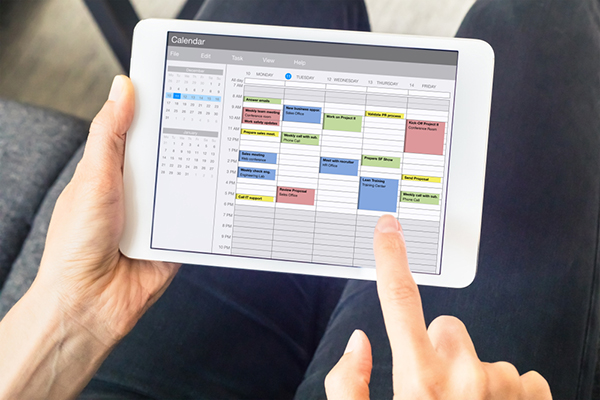
Practicing Geriatric Medicine: There are now apps where you can set your appointment time, and it gives you a notification instead of having to stay in a waiting room.
Once you get it set up, it would be a matter of contacting the clinic, helping us get that set up on our computer system. It’s like scheduling any other appointment. You would ask for an appointment time. You would need to log on to that app just before that appointment time. It would be like sitting in a waiting room. It gives you a notification that you’re in the waiting room. Instead of it being an office, the waiting room is your couch and you’re in your own home. I get a notification that you’re ready. We get on the computer and you will be able to talk to me face-to-face.
For anyone who hasn’t heard what telemed is, it’s a way for you to engage with your doctor using video conferencing so they can, hopefully, diagnose what’s going on with you and take care of you from the comfort of your own home, correct?
That is correct. It’s just like you’re seeing me. A lot of folks say, “What’s the penalty? Do I have to pay a fee to be able to use the service?” It’s the same as if you come here. The idea for us is to increase the access that patients have to me or to their doctor. The one thing that’s always been identified as a problem in medicine as a whole is people being not having that access to their doctor when they feel that they need them. We create every opportunity to open that access, whether it be like those extended-hour clinics if we’re not open here at this office. There are several in Austin that are available to always having your doctor on call. Most of the time, that’s me. If I’m out of the office on some weekends, it may be a covering doc. There will be somebody on call. There’s not a lot of folks who can say they have that 24/7 access to somebody that has their record.
We’ve had a wonderful conversation. It’s entertaining, engaging and educational. I want to thank you for your time. Before we go our separate ways, is there anything that I should have asked that I hadn’t asked yet that you think we should know about?
No, I think that covers the big part of what we do and why we do it. The gentleman that had started this is George Rapier. That was his mission at the start. He saw a need and saw that the biggest part of our population was not getting the care that they need. He started it and let it become what it is today. Docs like myself can come out and say, “What’s next for me? There’s something out there that can utilize exactly what I wanted to begin with,” which was what a lot of doctors want. They find that when you get into the real world, outside of residency, it doesn’t work that way. There are all kinds of corporate entities that come into play. For a doc to come out and say, “What I want to do is spend time with my patients. That’s the whole reason I did it,” for that doctor, this is the best place.
Many of our readers are going to be Lakeway or BK residents. I do want to touch briefly on your location. Many of you, like my residents, are driving by WellMed every day and may not even know that that’s the case. As you come into Lakeway using Logan’s crossing from 620 going into the heart of Lakeway, WellMed is on the right. You may recognize the Keller Williams building there. They are the Keller Williams’ neighbors. If you hit Lakeway Elementary School, you’ve gone a little bit too far. Circle back around, make that U-turn and come on in. In parting words, if I’m following this podcast and I think to myself, “This is perfect for me and I want to get engaged,” what would be their next steps, Dr. Purtle?
I would say to contact the clinic. See if your plan is one that we accept. If not, we can always help you get in touch with the broker if this is something you’re really interested in, for you to discuss what options you have. Then we’ll get you scheduled. Medicare Advantage means that we’re going to get you in for labs and screening studies and then to see me. I’ve had individuals that have called and requested that appointment. We managed to get them in on the same day, not just if you’re established on the same day. For screening things, we say that we typically will do the screen studies the next week. We will follow up. Again, those initial visits are scheduled for an hour with me. I tend to go over with that just because I’m loving what I’m doing with everybody.
Share with us the phone number and the web address.
To be able to reach us by phone, it’s going to be (737) 717-8430.
We can probably find you on the world wide web by searching WellMed Lakeway.
That is correct.
Are there any social media channels or handles?
WellMed Medical Management has its own Facebook page. I do encourage you to check in there. You can see what’s going on in the different WellMedcommunities. WellMed has a lot of events for people that are patients. Even if you’re not a patient and you want to take advantage of some of the things we’re doing, you can do that too. There is a senior center at the Ben White clinic. That one is cool. It’s got a lot of exercise equipment. A lot of people meet up there just to talk.
Coming out here, I got a little taste of all the clinics that were in the area and what they all have to offer. I can tell you that one of the most interesting ones was the WellMed that was out in Taylor, which is on the opposite of Austin. People came in, had coffee, and hang around. One of the big hotspots of the town was to meet and have coffee at the WellMed and talk about it, watch the news on the TV. When we have this clinic built here, I wanted to have that in mind. If you want to come by, have a fresh cup of coffee and watch some TV away from the house, do that here too.
It sounds like you’re building a great sense of community and that’s exactly what we need. It’s that friendship, love, and support amidst great profession and obviously well-qualified professionals. Thank you so much once again, Dr. Purtle. It was a great honor and so informational. We appreciate you and all that you do to serve our community locally.
Thank you. Come by and meet me.
I’ll stop by next time I’m over there. Thanks again. It was great to meet you.
Thank you.
Take care.
Important Links:
- WellMed
- Medicare
- Facebook – WellMed Medical Management, Inc.
- https://HeartAndSoldGroup.com/
- https://www.WellMedHealthcare.com/
About David Purtle
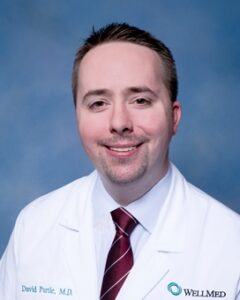 Doctor of Medicine – Texas Tech Univ. Health Science Center School of Medicine
Doctor of Medicine – Texas Tech Univ. Health Science Center School of Medicine
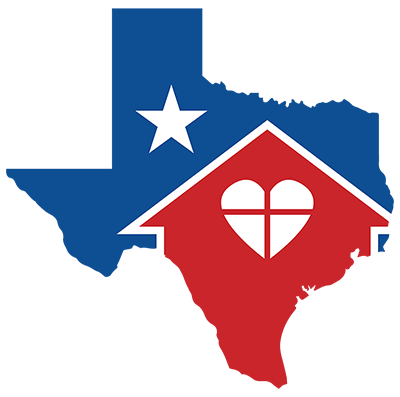
Recent Comments